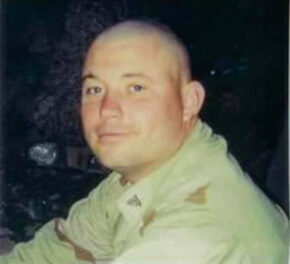The Buddy Poppy
The poppy movement was inspired by the poem “In Flanders Fields” written by Lieutenant Colonel John McCrae of the Canadian forces, before the United States entered World War I. Poppies were flowering in the spring of 1915 on the battlefields of Belgium, France and Gallipoliow, growing wild amid the ravaged landscape which was the inspiration for Colonel McCrae’s poem.

Selling replicas of the original Flanders’ poppy was originally sold to provide relief for the people of war-devastated France. Shortly after World War I, Madame E. Guerin, founder of the American and French Children’s League, became concerned that the free world was forgetting too soon those sleeping in Flanders Fields. Guerin began attending the conventions of any serviceman’s organization that would allow her to speak. Her request was always the same – to enact the following resolution: “Be it resolved that every member, if possible, and his or her family shall wear a silk red poppy.”
In April 1919, the “Poppy Lady”, as Madame Guerin was now known, arrived in the United States. When the Poppy Lady turned to the VFW for help, the organization readily agreed to take over from the American Legion. In May 1922, the VFW conducted the first nationwide distribution of poppies in the United States. Then, at its National Encampment in Seattle in August 1922, the organization adopted the poppy as the official memorial flower of the VFW.
 A plan culminated to pay disabled and needy American veterans to make the poppies. This plan was presented to the 1923 National Encampment for approval. Immediately following the plan’s adoption, a VFW poppy factory was set up in Pittsburgh, Pennsylvania. It was from these early disabled poppy makers that the name which would be the flower’s trademark came. The name grew out of the poppy makers’ remembrances of their buddies who never came back from war. Undoubtedly, because it expressed so simply the deepest significance of the Poppy Plan, the name stuck. All over the country, the little red flower became known as the “Buddy Poppy.”
A plan culminated to pay disabled and needy American veterans to make the poppies. This plan was presented to the 1923 National Encampment for approval. Immediately following the plan’s adoption, a VFW poppy factory was set up in Pittsburgh, Pennsylvania. It was from these early disabled poppy makers that the name which would be the flower’s trademark came. The name grew out of the poppy makers’ remembrances of their buddies who never came back from war. Undoubtedly, because it expressed so simply the deepest significance of the Poppy Plan, the name stuck. All over the country, the little red flower became known as the “Buddy Poppy.”
In February 1924, the VFW registered the name “Buddy Poppy” with the U.S. Patent Office. On May 20, 1924, a certificate was issued granting the VFW, under the classification of artificial flowers, all trademark rights to the name of “Buddy.” No other organization, firm, or individual can use the name “Buddy Poppy.” The VFW has made this trademark a guarantee that all poppies bearing that name and the VFW label are the work of bona fide disabled and needy veterans.
Posts receive their profits from donations received in exchange for poppies to the public. National by-laws require that the profits from these sales be placed in the post’s Relief Fund to be used only for the following purposes:
- For the aid, assistance, relief, and comfort of needy or disabled veterans or members of the Armed Forces and their dependents, and the widows and orphans of deceased veterans.
- For the maintenance and expansion of the VFW National Home and other facilities devoted exclusively to the benefit and welfare of the dependents, widows, and orphans of disabled, needy, or deceased veterans or members of the Armed Forces.
- For necessary expenses in providing entertainment, care, and assistance to hospitalized veterans or members of the Armed Forces.
- For veterans’ rehabilitation, welfare, and service work.
- To perpetuate the memory of deceased veterans and members of the Armed Forces, and to comfort survivors.
No matter what the cost of maintaining and supplying the Poppy Shops, the memorial poppy is never sold, but given in exchange for a contribution.
Today, VFW Buddy Poppies are assembled by disabled, needy, and aging veterans in VA Hospitals and domiciliaries across the country. The majority of proceeds derived from each donation conducted by VFW Posts and their Ladies Auxiliaries is retained locally to provide for veteran services and welfare. The minimal assessment (cost of Buddy Poppies) to VFW units provides compensation to the veterans who assembled the poppies, provides financial assistance in maintaining state and national veterans’ rehabilitation and service programs, and partially supports the VFW National Home for orphans and widows of our nation’s veterans.
IN FLANDER'S FIELD
by John McCrae
In Flanders Fields the poppies blow,
Between the crosses, row on row,
That mark our place; and in the sky,
The larks, still bravely singing, fly,
Scarce heard amid the guns below.
We are the dead.
Short days ago,
We lived, felt dawn, saw sunset glow,
Loved and were loved and now we lie,
In Flanders Fields.
Take up our quarrel with the foe
To you, from failing hands, we throw,
The torch, be yours to hold it high.
If ye break faith with us, who die,
We shall not sleep, though poppies grow,
In Flanders Fields.




